Can you freeze eggs? Yes, you can! This super simple method of freezing eggs (one or many) will help you save money and give you a supply of fresh eggs year-round for breakfasts and your favorite sweet or savory recipes!
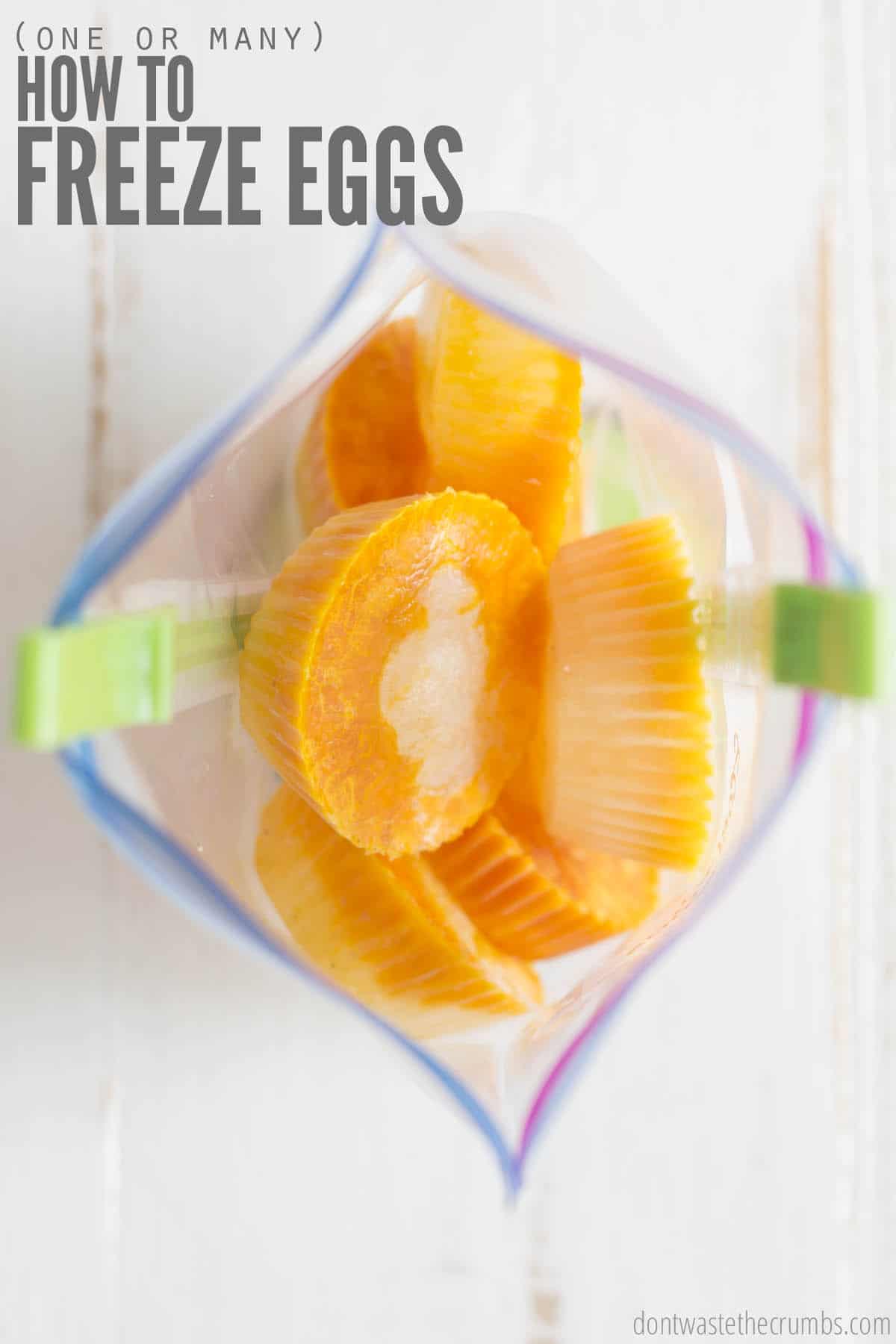
Did you know that hens don’t naturally lay lots of eggs year-round? It’s true!
Hens lay eggs according to the amount of seasonal daylight. So in the winter season, we get far fewer eggs than we do in the spring and summer seasons where there is ample daylight for the hens to lay lots of eggs.
(Side note: You might be wondering why you see eggs in the supermarket all year long then – and that’s because commercial farmers use overhead lights to simulate sunlight.)
So, with the high cost of eggs these days, we still want to be sure that we have fresh eggs to eat for breakfast (or for baking our favorite healthier cakes, cupcakes, cookies) year-round.
My solution? Well, I have two. There is an egg preservation method called waterglassing that you might have already read about on my blog. It’s a great method for preserving eggs, and I’ve been doing it since we moved to the homestead.
My next solution is to simply freeze fresh eggs!
It’s super easy and I think it’s the best way to have plenty of fresh eggs ready for whenever you need them! Freezing eggs is ideal for when you’ve got extra eggs that you obviously don’t want to waste, whether you’re going on a trip or you’ve got too many eggs for your current meal plan – whatever the situation, just freeze them!
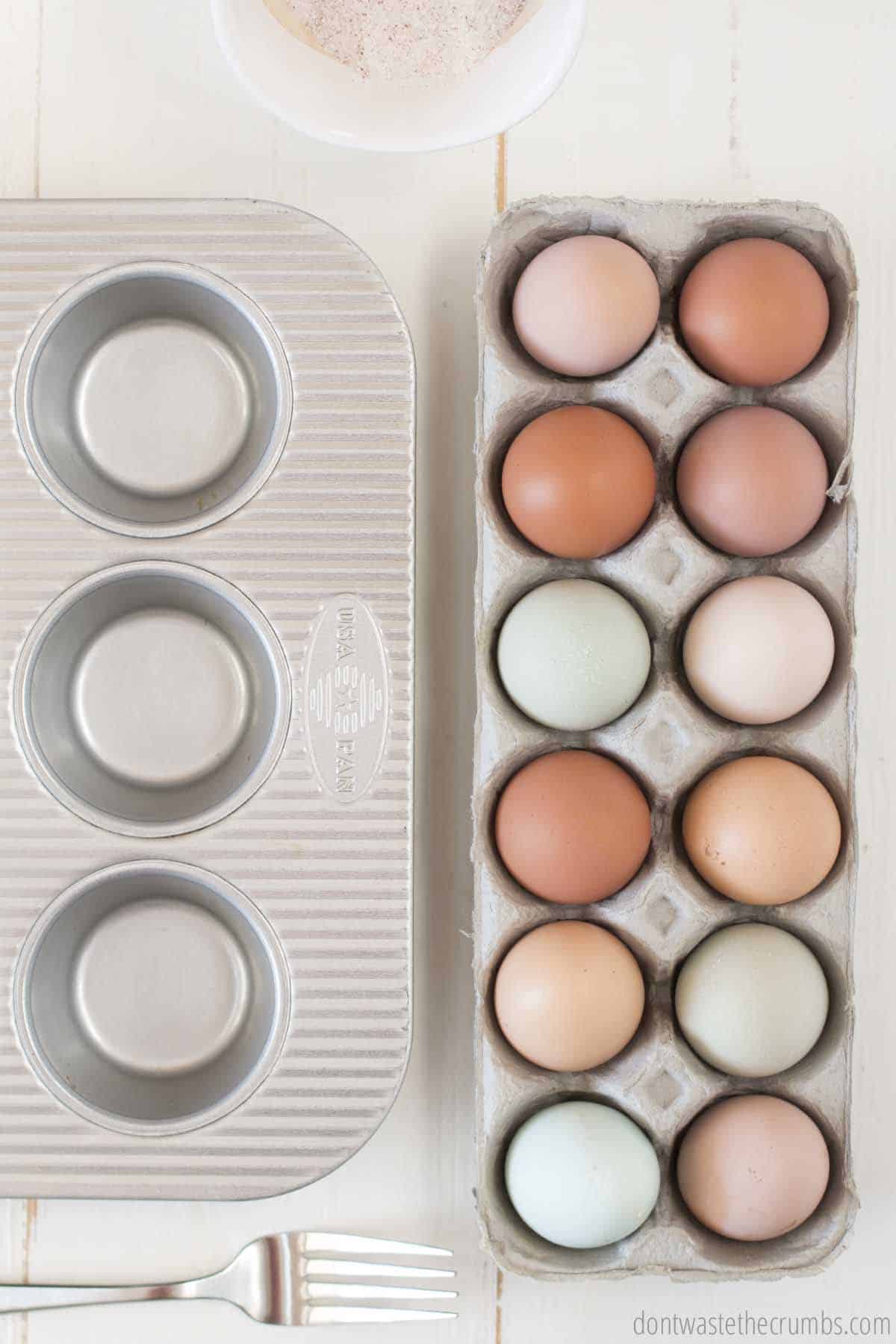
How To Freeze Eggs
What you need:
- the freshest eggs (make sure they’re clean)
- muffin tin
- fork (for whisking)
- salt
- plastic wrap (for use during freezing)
- freezer safe containers or freezer bags
Note: If you know that you are going to use your eggs for sweet recipes, you can use 1/8 teaspoon of sugar instead of salt.
Another note: You can freeze one egg or many. It’s up to you!
Psst! If you’re going to add salt, I highly recommend Ava Jane’s Kitchen. You may think all salt is created equal, but unfortunately, 90% of the salt produced around the world contains microplastics (gross, right?). Ava Jane’s Kitchen is an exception. Their salt is 100% microplastic-free, and it’s SO GOOD! Plus, you can get a bag for just 1¢!! (Get your penny bag of salt on this page.)
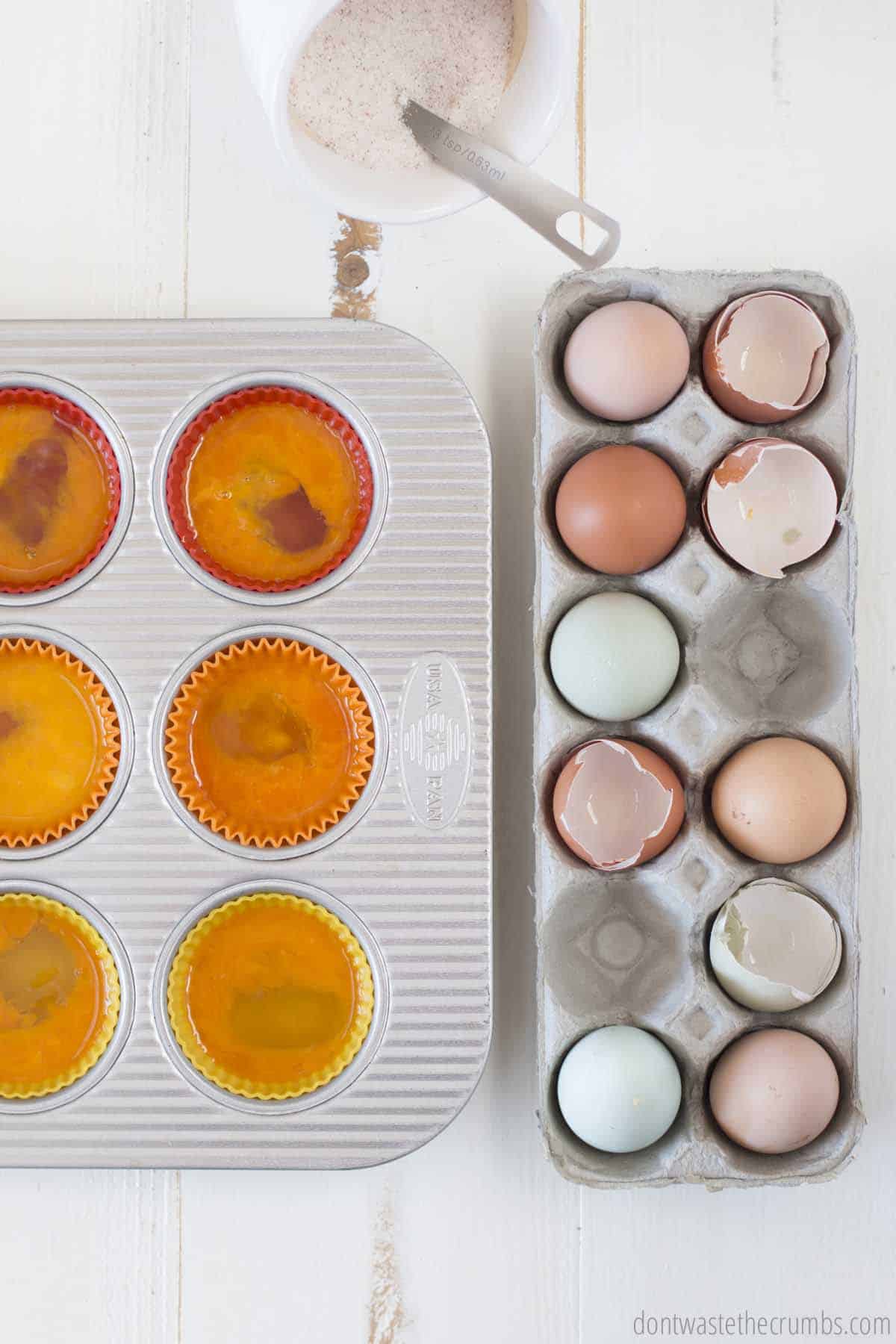
How to Freeze Eggs Step by Step
Step 1: Make sure your muffin pan is clean and dry. I lined my muffin tin with silicone baking cups, but you don’t have to. Break an egg into each muffin cup. Continue on until each muffin cup is filled with one egg each.
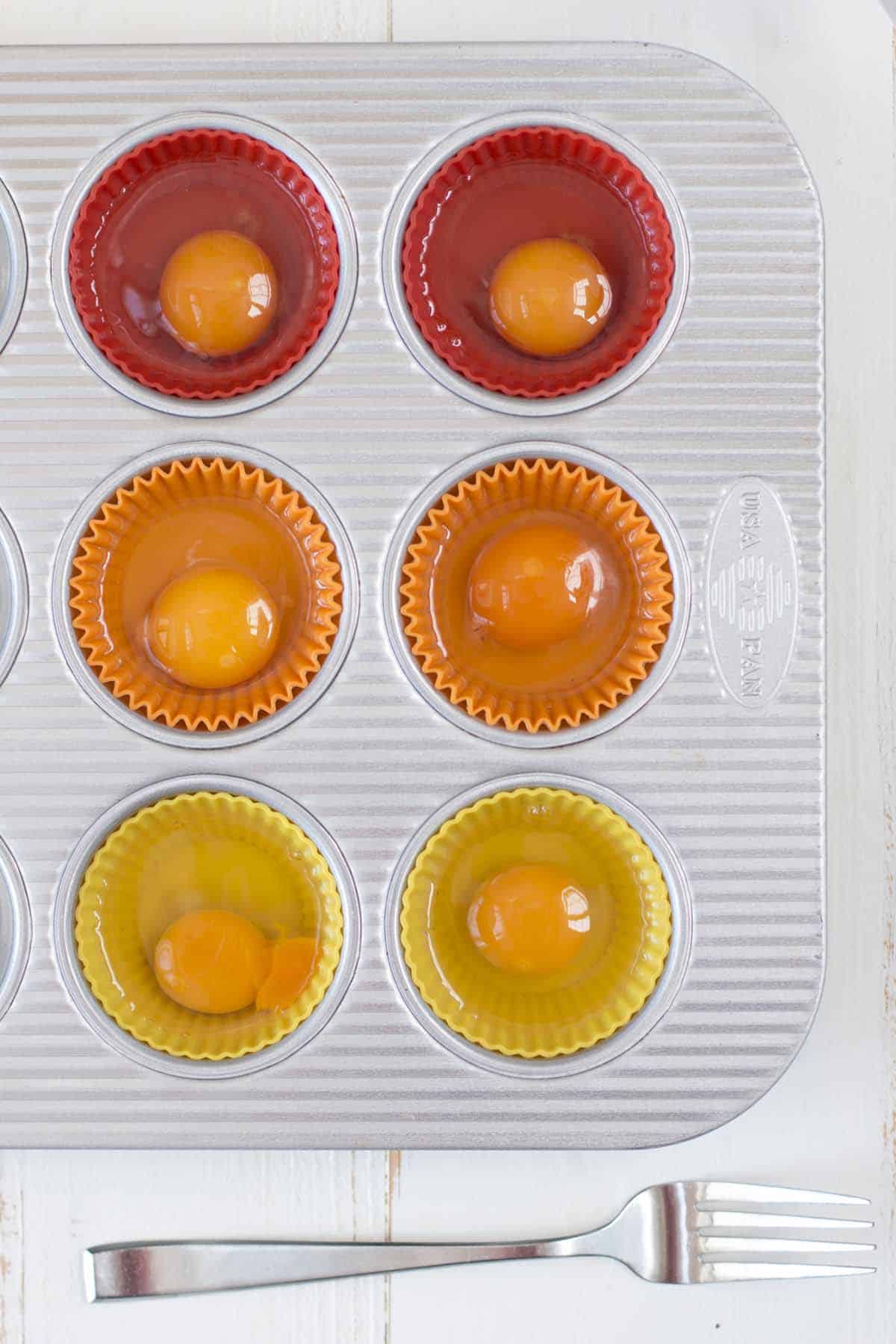
Step 2: Add 1/8 teaspoon salt to each egg in the muffin tin. If you know that you are going to use your eggs for sweet recipes, you can add 1/8 teaspoon of sugar instead of salt (make sure to mark it on your freezer container so you know if you’ve used salt or sugar).
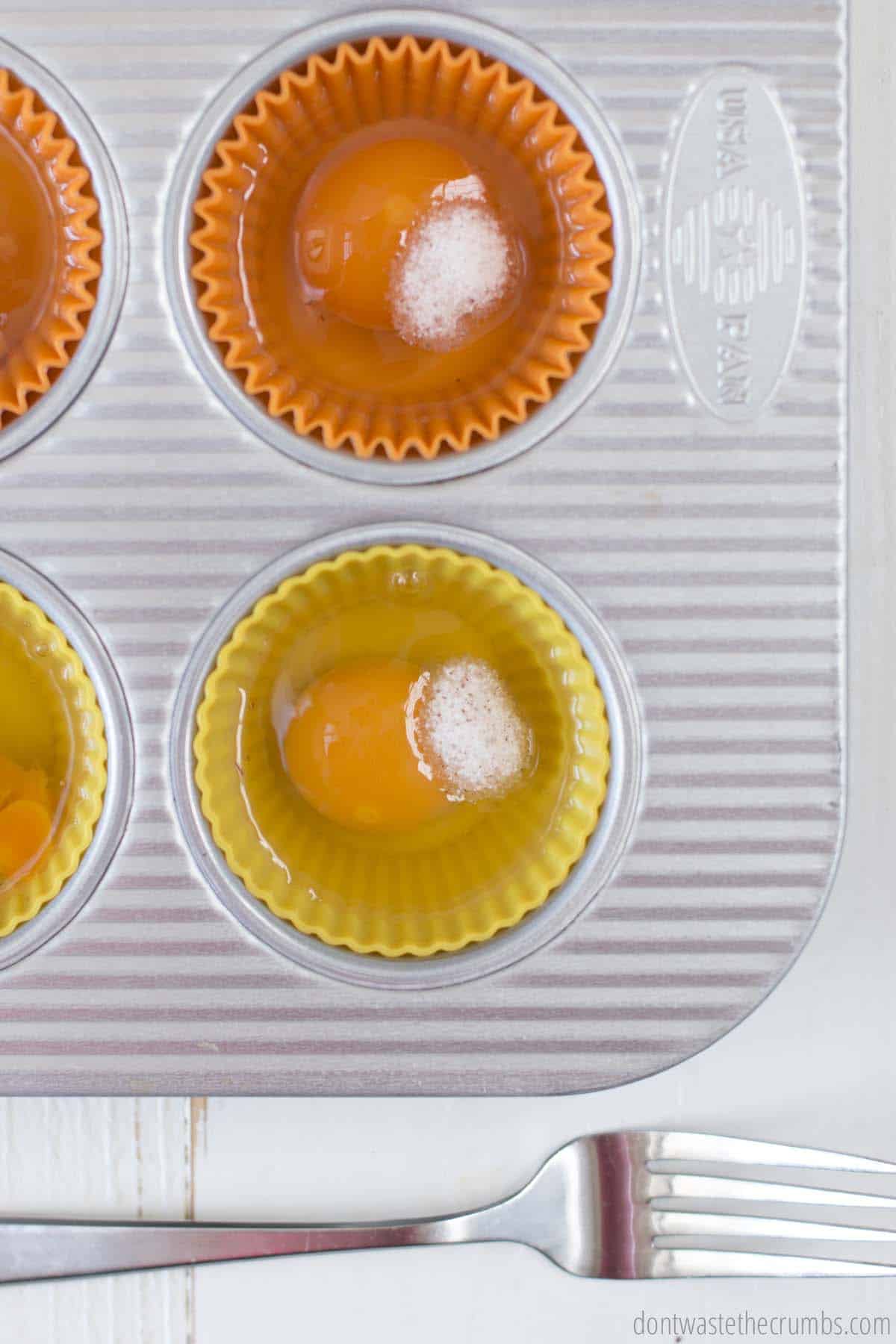
Step 3: Using your fork, gently whisk each egg just until it is beaten. Don’t over-whisk the egg.
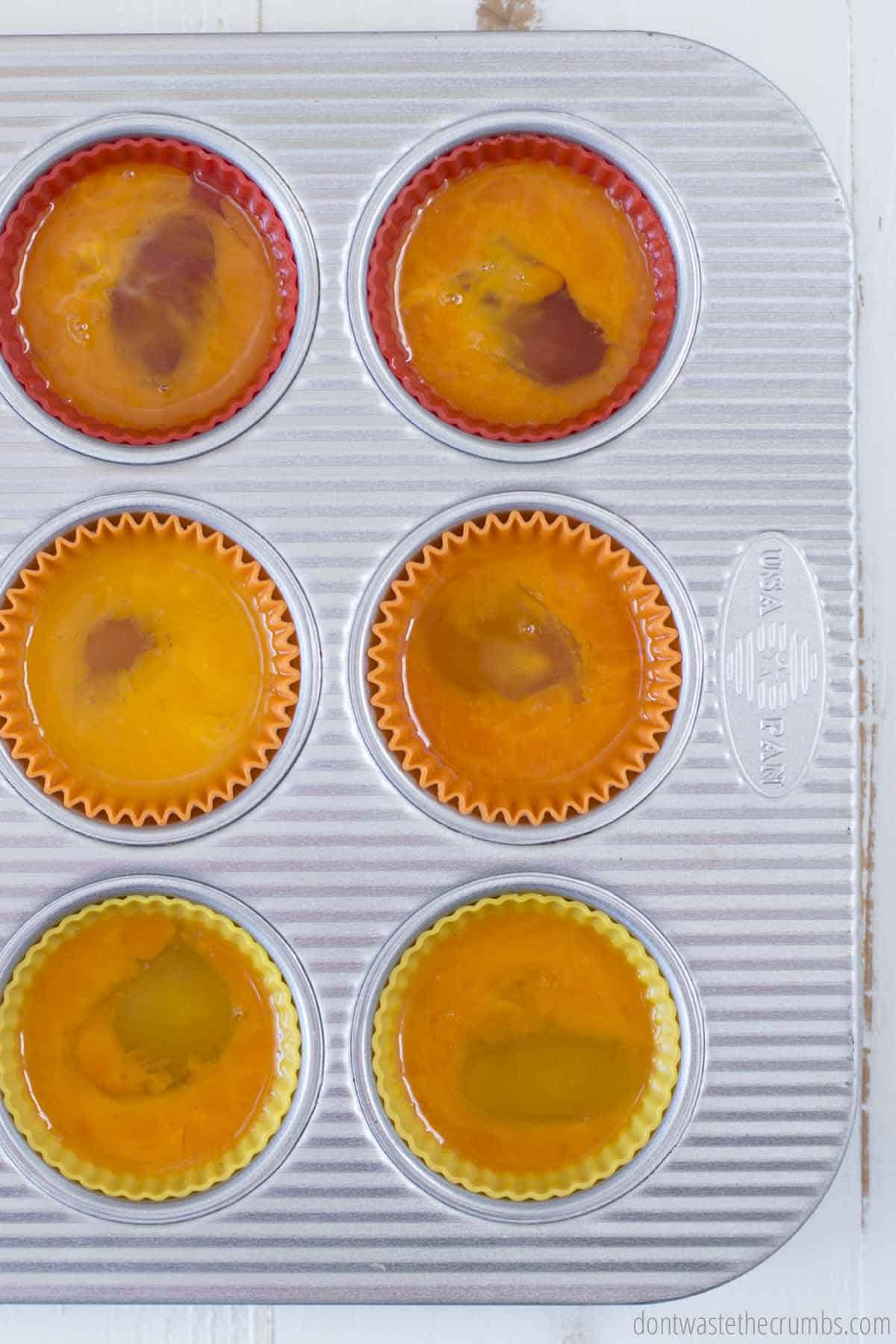
Step 4: Using freezer-safe plastic wrap, cover the whole muffin tin and freeze in the freezer preferably overnight.
Step 5: Once your eggs are completely frozen, remove each individual egg from the muffin pan and put them into a freezer safe container or zip-top freezer bags. It’s fine to put them together in one bag once they’re completely frozen. Push the air out of the container or freezer bag, and seal.
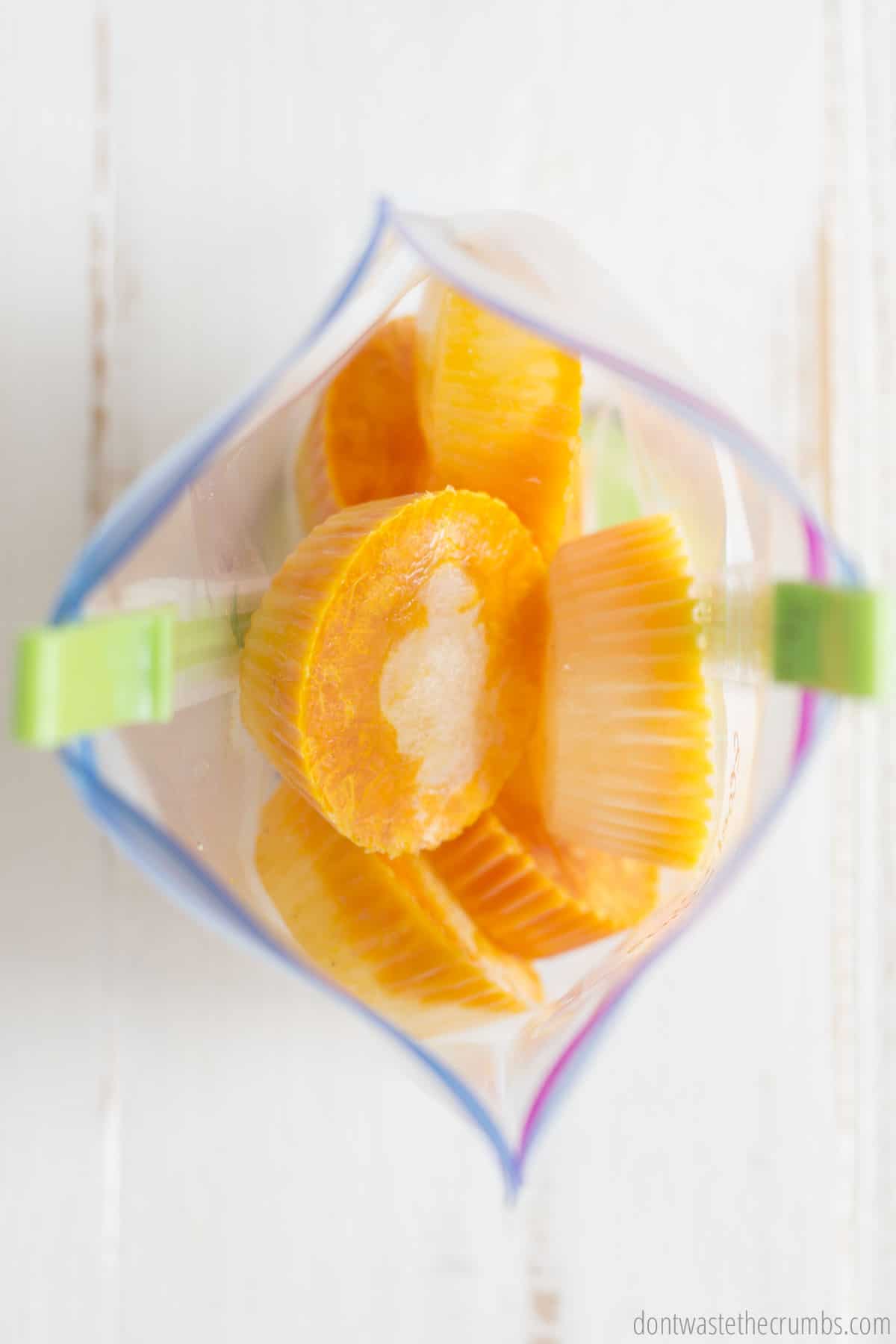
Step 6: Using a marker, label your eggs and date them so you know when you put them in the freezer. According to the experts, they are good frozen in the freezer for 6 months.
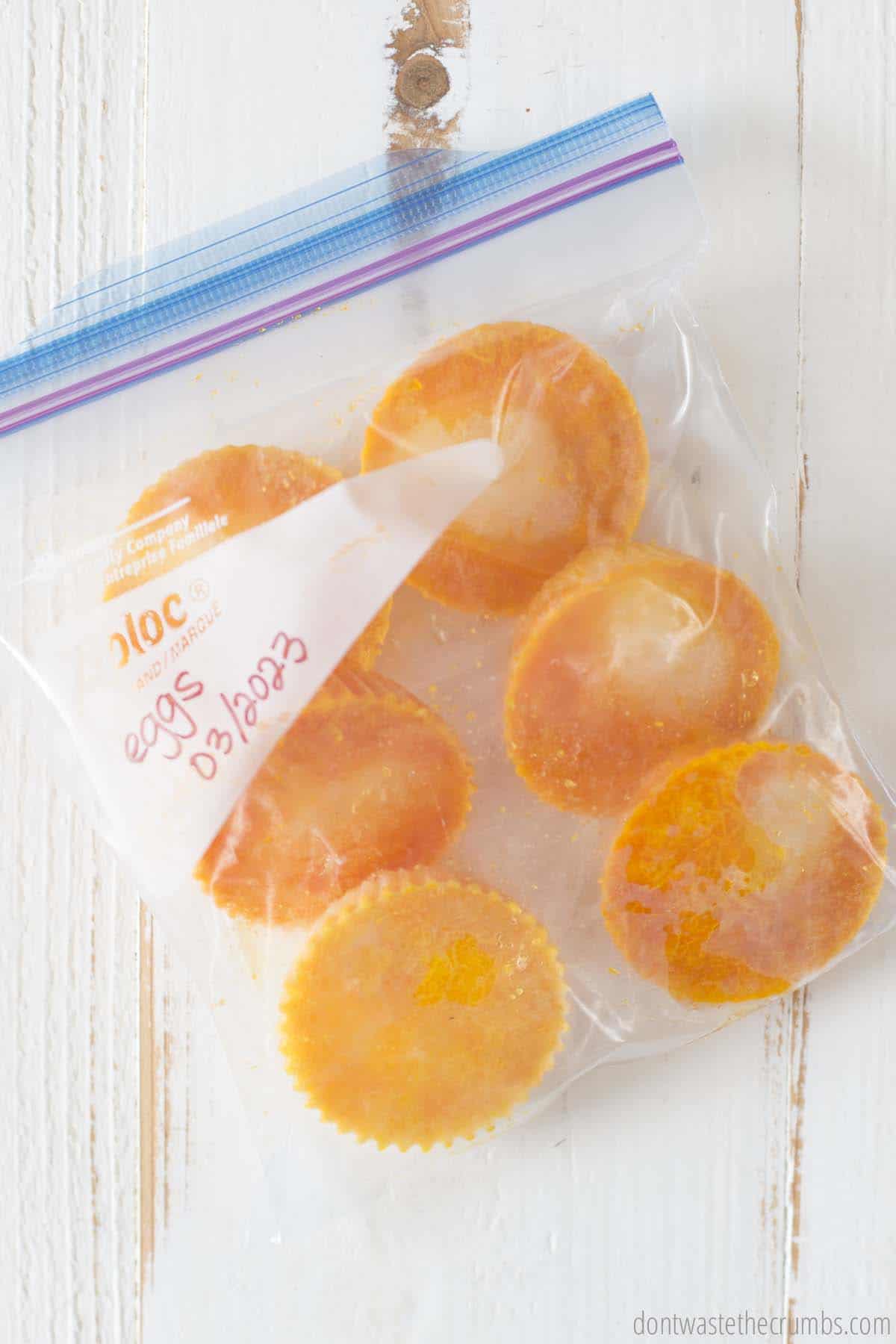
And that’s all there is to it!
How to Thaw Frozen Eggs
You will want to pull the eggs that you need for thawing the night before – and thaw overnight in a bowl in the refrigerator.
What if you forget to thaw the eggs overnight and you need to use them for a recipe?
No problem. Just pull the eggs that you need from the freezer, seal them in a sealed zipper bag, and run them under cold water until thawed.
Note: Be sure that you don’t refreeze eggs that were previously frozen.
Freezing Eggs FAQs
What is the proper way to freeze fresh eggs?
The muffin tin method that I have detailed in this blog post is the best way to freeze eggs in my opinion. Try it!
Can you freeze whole eggs in the shell?
Eggs in their shells should not be frozen. Egg shells are porous and can easily crack, ruining the freshness of the egg. If you want to freeze eggs, just follow the super easy method I have detailed in my blog post.
Do you freeze eggs with or without salt?
Use 1/8 teaspoon for each egg that you are freezing. This helps the yolk maintain it’s texture. If you know that you are going to use your eggs for sweet recipes, you can add 1/8 teaspoon of sugar instead of salt.
Can you freeze egg whites only?
Yes. You can freeze egg whites or egg yolks separately, and you can freeze whole eggs lightly beaten.
More Freezing Tutorials

30 Minute Dinners Sample Meal Plan
Sign up to get instant access to my 30 Minute Dinners Sample Meal Plan, complete with recipes and step-by-step instructions!How To Freeze Eggs
Can you freeze eggs? Yes, you can! This super simple method of freezing eggs will help you save money and give you a supply of fresh eggs year-round for breakfasts and your favorite sweet or savory recipes!
- Prep Time: 10 minutes
- Cook Time: 0 minutes
- Total Time: 10 minutes
- Yield: 12 eggs to a muffin tin 1x
- Category: DIY
- Method: Freeze
- Cuisine: American
Ingredients
What you need:
- the freshest eggs (make sure they’re clean)
- muffin tin
- fork (for whisking)
- 1/8 teaspoon salt
- plastic wrap (for use during freezing)
- freezer safe containers or freezer bags
Note: If you know that you are going to use your eggs for sweet recipes, you can use 1/8 teaspoon of sugar instead of salt.
Another note: You can freeze one egg or many. It’s up to you!
Instructions
- Make sure your muffin pan is clean and dry. I lined my muffin tin with silicone baking cups, but you don’t have to. Break an egg into each muffin cup. Continue on until each muffin cup is filled with one egg each.
- Add 1/8 teaspoon salt to each egg in the muffin tin. If you know that you are going to use your eggs for sweet recipes, you can add 1/8 teaspoon of sugar instead of salt (make sure to mark it on your freezer container so you know if you’ve used salt or sugar).
- Using your fork, gently whisk each egg just until it is beaten. Don’t over-whisk the egg.
- Using freezer-safe plastic wrap, cover the whole muffin tin and freeze in the freezer preferably overnight.
- Once your eggs are completely frozen, remove each individual egg from the muffin pan and put them into a freezer safe container or zip-top freezer bags. It’s fine to put them together in one bag once they’re completely frozen. Push the air out of the container or freezer bag, and seal.
- Using a marker, label your eggs and date them so you know when you put them in the freezer. According to the experts, they are good frozen in the freezer for 6 months.
Notes
How to Thaw Frozen Eggs
You will want to pull the eggs that you need for thawing the night before – and thaw overnight in a bowl in the refrigerator.
What if you forget to thaw the eggs overnight and you need to use them for a recipe?
No problem. Just pull the eggs that you need from the freezer, seal them in a sealed zipper bag, and run them under cold water until thawed.
Note: Be sure that you don’t refreeze eggs that were previously frozen.
Nutrition
- Serving Size: 1 egg
- Calories: 78

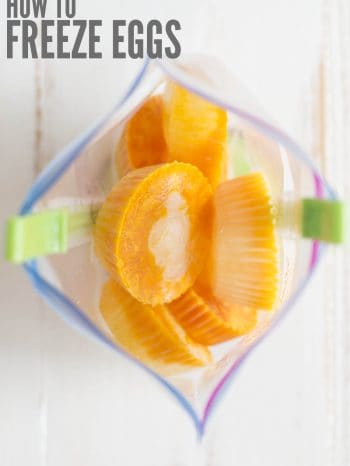
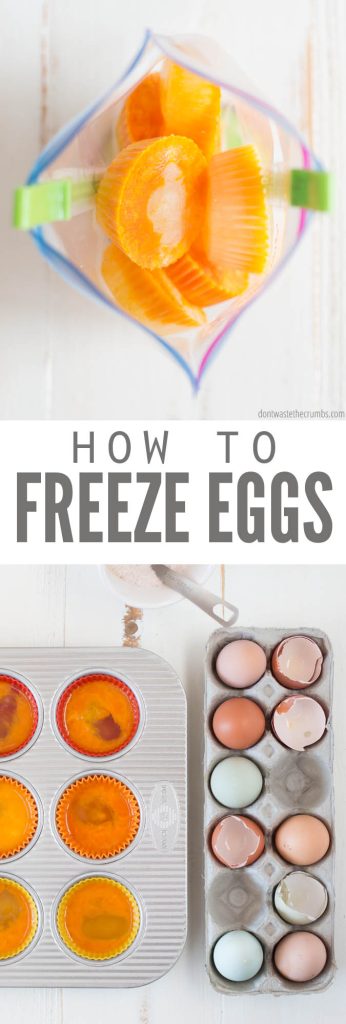
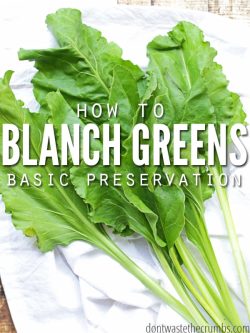
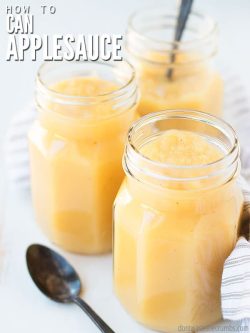
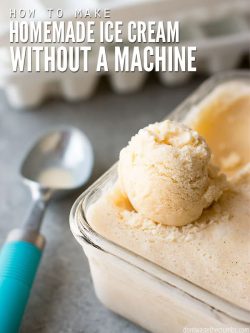
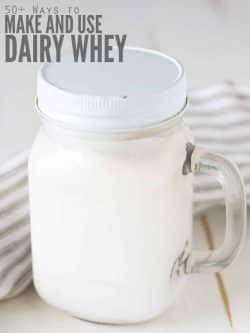

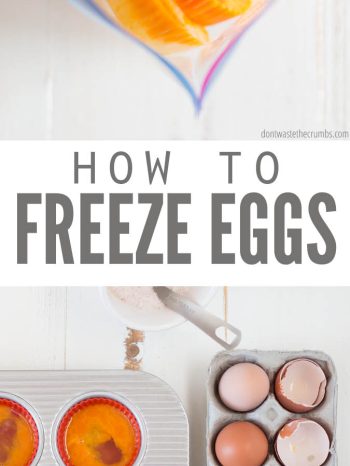
Leave a Comment